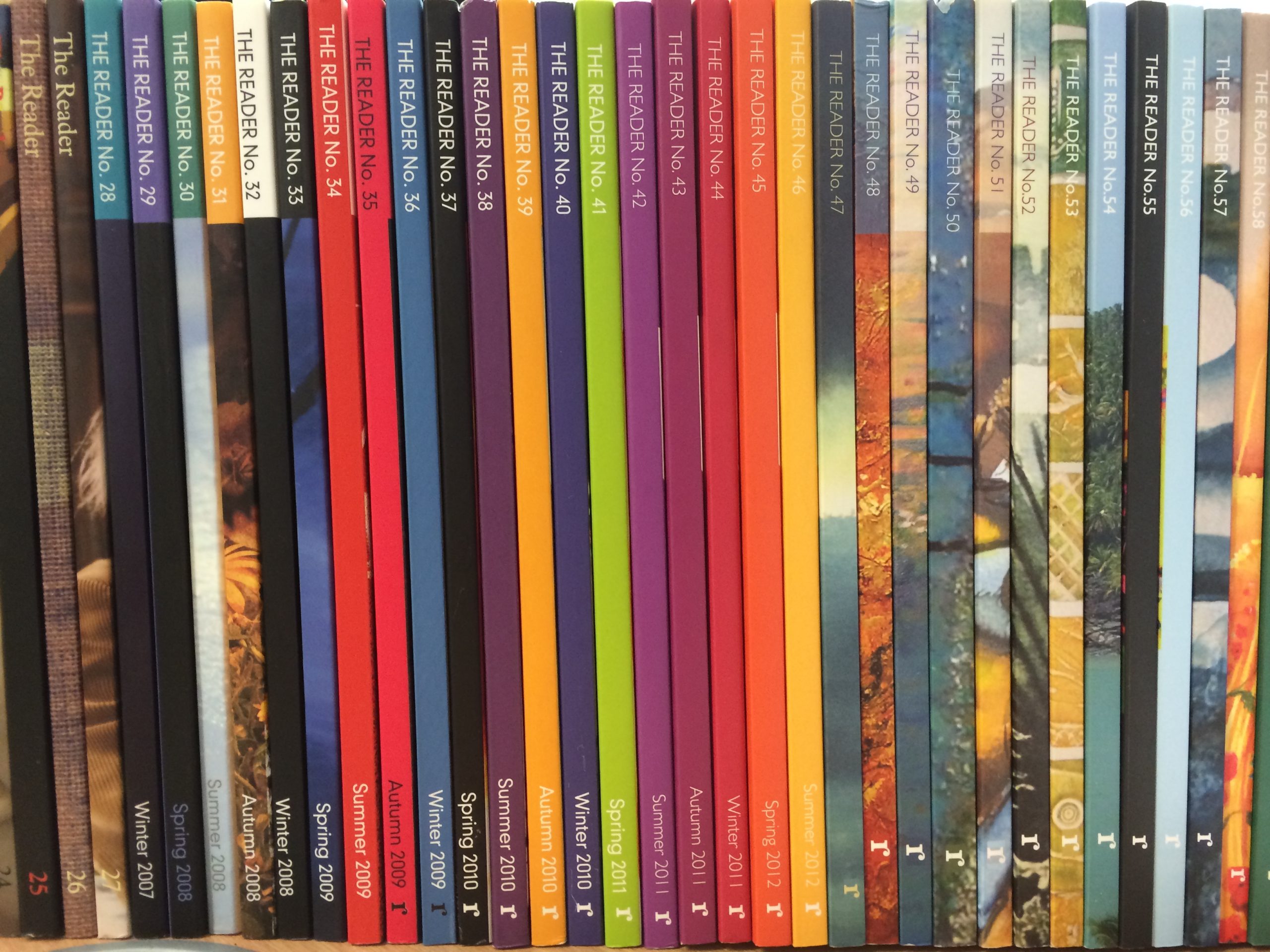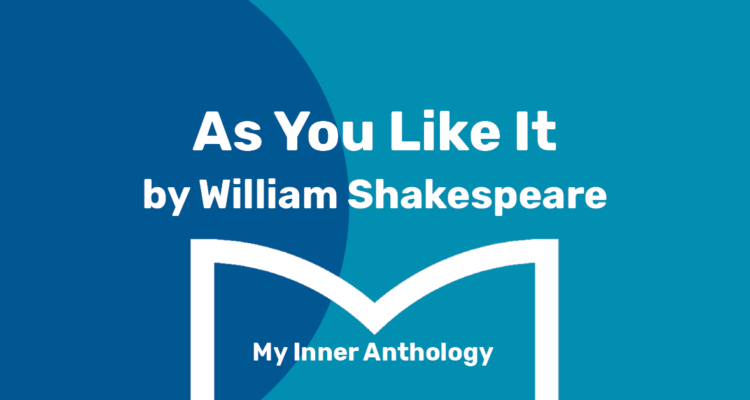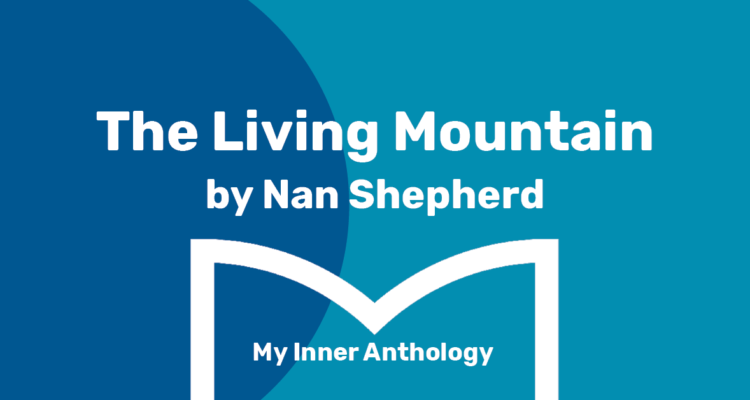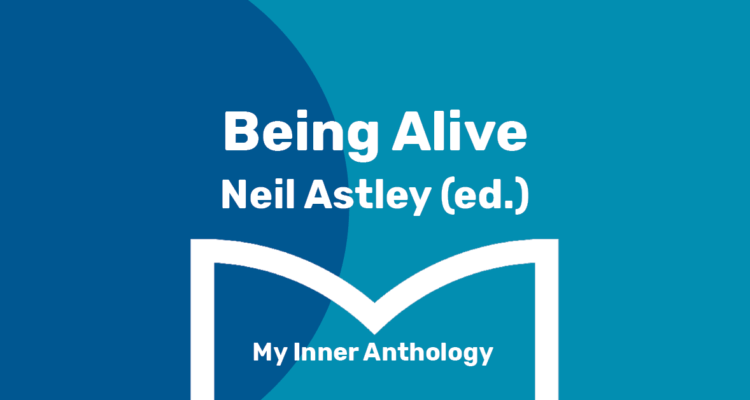My Inner Anthology: Looking Up by Ann Stapleton
Frances Macmillan, Publisher of The Reader Magazine, recommends the essay 'Looking Up' by Ann Stapleton from The Reader magazine Issue 72. Purchase your copy of The Reader Magazine.
Download our daily readings calendar for November here.

I read Ann Stapleton’s strange and wonderful essay ‘Looking Up’ when it was first published in The Reader magazine, in Issue 24, which was back in 2006. It was so unlike anything I’d read before – it is a long essay but seems at times closer to poetry or perhaps a series of short stories – that it stayed with me, and lines from it have returned to me many times over the years. It’s hard to describe what the piece is about to someone who hasn’t read it. You could say it’s about birds, about the twinned beauty and harshness of nature, or its about how and why humans find meaning and consolation in these things. It’s not an especially easy read – you have to get used to her sentences, they make you work a bit harder than usual. In some parts her voice is wry and quizzical and funny, and in other parts she is in desperate earnest. It’s emphatically never cynical. Her message about ‘looking up’ is in almost every line, and that message seemed very relevant and very urgent during the months of the first lockdown, when everyone felt the danger of getting stuck, cut off from normal life and other people, or lost in panic or mute suffering, and at the same time the Spring seemed miraculously abundant and fresh, with formerly invisible growing things shooting into life and calling us out of ourselves. It seemed right to reprint the essay in the ‘From the Archive’ section of the latest issue of the magazine.
The bit about the bluebirds has returned to me most often. In this section, we hear how a nest of bluebird chicks has been knocked down and abandoned – an ordinary little tragedy. A man rescues the nest, looks after the chicks, though he knows the odds are against them. And sure enough, they don’t survive:
And then one day the first one dies, a fungus probably. And then one after another, one per day, as if by prior agreement with something pitiless and implacable above that does not want them, not even for a second. Their heads grow too heavy. They can no longer eat. One by one, they drop backwards out of time.
This bit usually makes me cry. Childish, really. It’s too hard. It’s not fair. Then she writes:
But if you think this is a story about failure, you have only to look up from what you cannot keep.
This line reminds me of one from the Wendell Berry poem ‘The Slip’, which appeared in the same recent issue of The Reader: ‘Though death is in the healing, it will heal.’ There’s consolation to be had here, but it’s of a formidable sort: you cannot keep some things, however dear they may be, so you have only to look up. ‘Looking up’ is an act of faith and it is, as Ann admits earlier in the piece, ‘not always the easiest of occupations’. I think of someone I saw once struggling with depression, their head bent downwards as if pulled by invisible weights. Looking up feels too hard sometimes. But it’s only a little action in itself, a small movement. It remains possible. The short story about the bluebirds doesn’t end there, instead the perspective zooms outwards to watch the man move about the world and through his life. The blue of the birds is ‘urned inside’ this man, and his attempt to save them, what he became to them – there’s something real in that, something of meaning that survives within the failure. ‘Their instinctive last resort, their place of final restlessness, he is their only means… See him walking out of his house each morning as if he is an ordinary earthbound man.’
More stories of birds – a crow with a broken wing, a fledgling wren, a barn owl – pick up this theme. It’s a totally unique thing, this essay, or whatever it is, and it still feels brave, even audacious. It’ a breath of fresh air and lightness in these gloomy, rainy times. Find the rest of it in The Reader Issue 72.
Editor’s note: We made many unsuccessful attempts to contact Ann Stapleton to let her know we were reprinting her essay in the magazine. If anyone reading this can help us reach her, please do get in touch at magazine@thereader.org.uk
Share
Related Articles

My Inner Anthology: As You Like It by William Shakespeare
Reader Leader, Lizzie, recommends As You Like It by William Shakespeare. In May the theme for our Daily Readings is inspired by The…

My Inner Anthology: The Living Mountain by Nan Shepherd
Teaching and Learning Coordinator, Lisa Spurgin, recommends The Living Mountain by Nan Shepherd. In May the theme for our Daily Readings is…

My Inner Anthology: Being Alive – Neil Astley (ed.)
Reader Leader Lizzie, recommends and reads from 'Being Alive' - Neil Astley (ed.). In May the theme for our Daily…


